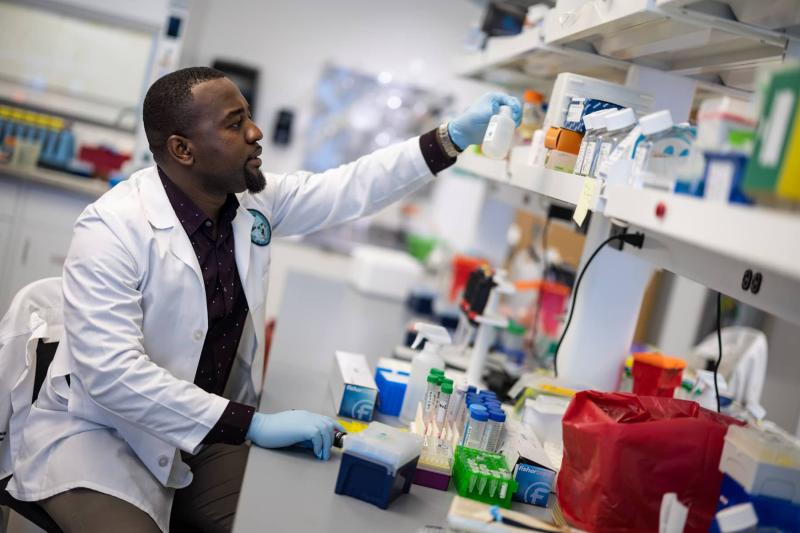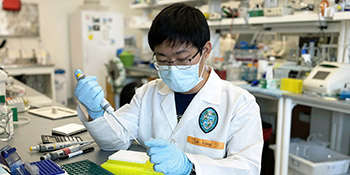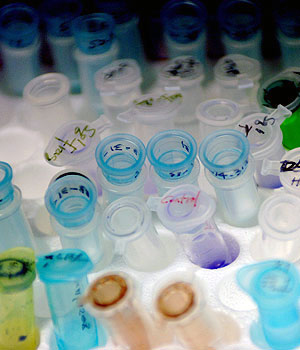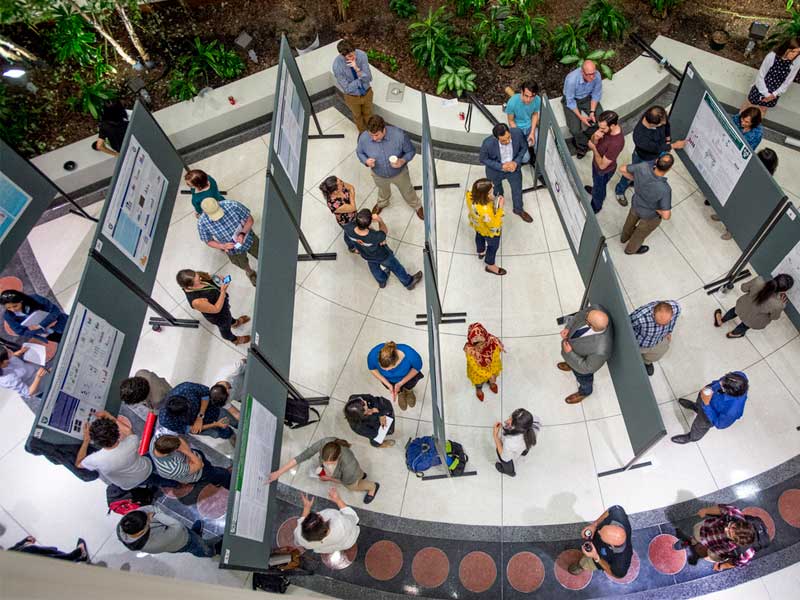Student Research

The Importance of Research
Research is the driving force for all medical advancement. Research experiences teach the critical thinking skills that are vital for evidence-based and value-based medicine. While research experiences are increasingly important for residency applications, they can also provide a start in academic medicine.
Research Opportunities at Tulane Medicine
What Research Opportunities are Available at TUSOM?
Tulane University School of Medicine encourages and supports medical student participation in research and scholarly activities. See below for basic information related to the different types of research, including the relevant contact person, should you have questions.
If you are interested in basic/bench research, please click here for a list of faculty engaged in research.
Should you have any questions or need information, please contact Dr. Derek Pociask.
For students interested in research in one of the core clerkship departments, please contact the individuals listed below:
• Psychiatry: Dr. Erin Stanton
• Pediatrics: Dr. Margee Huntwork
• Family Medicine: Dr. Kiernan Smith or Adam Peltz
• Neurology: Devan Orellana
• Surgery: Dr. Danielle Tatum
• Ob/Gyn: Dr. Chi Dola
• Internal Medicine: Dr. Matthew Burow
If you are seeking other departmental-specific research opportunities, the Specialty Career Websites all have a contact person or instructions on how to get involved listed under "Research."
Clinical/Translational Research
Student must watch the following video prior to seeking a clinical/translational research opportunity
Contact Dr. Vivian Fonseca for more information.
Students interested in medical education research should contact Dr. Guen Rae or Dr. Chayan Chakraborti for more information.
Physician Scientist MD/PhD Program
Students interested in the Ph.D/MD program should contact BMS@tulane.edu for more information.
More information on this program can be found here.
To see some of the scholarly activities of current PSP students, see here.
Population & Public Health Research
Students interested in population and public health research should contact Dr. Tonette Krousel-Wood for more information.
If you are interested in the MD/MPH program’s research opportunities, more information can be found here
External Research Training Opportunities
Looking for ways to enrich your medical school experience? Check out the AAMC’s Directory of clinical and research opportunities.
The NIH Clinical Center offers training to help prepare the next generation of translational and clinician scientists. Innovative programs include summer internships, postbaccalaureate fellowships, clinical elective rotations, medical student research programs, graduate medical education, and continuing medical education.
Research Opportunities & Programs
Click below to learn more.
Statistical Support

As you engage in research, having a solid understanding of statistical methods is essential for drawing meaningful and accurate conclusions. Whether you’re seeking guidance on study design, data analysis techniques, interpretation of results, or need expertise in more advanced statistical modeling, the School of Medicine offers the following resources to support your work: Dr. Tim Niu offers biostats consultations for medical student research projects
Tulane’s LA CaTS Biostatistics, Epidemiology, & Research Design (BERD) Core provides expert guidance in support of clinical and translational research. In this pursuit, the BERD group provides front-end assistance to investigators (requests for support made by the PI) to ensure the use of statistically sound practices which facilitate properly designed and statistically valid studies.

Contact Us
Derek Pociask, Ph.D.
Director of Graduate Education for the Biomedical Sciences
Assistant Professor, John W. Deming Department of Medicine
Section of Pulmonary Diseases, Critical Care
And Environmental Medicine
Email: dpociask@tulane.edu
Phone: 504-988-7758
Tulane Research Inquiry
Email: TRI@tulane.edu
Biomedical Sciences Graduate Program
504-988-5226 | bms@tulane.edu



